Administering the Empire/Administering Europe
These states are deeply steeped in its codes, its influence, even in his brief appearances, their armies so full of its spirit and common triumphs that the institutions have survived to their temporary Protector. Good German people can not ignore the benefits they owe to Napoleon, more so than their legislator and founder than their conqueror
Jean-Jacques Germain Pelet-Clozeau, (1777-1858), Memoirs upon the War of 1809: with the separate operations of the Corps of Italy, of Poland, of Saxony, of Naples & of Walcheren.
In 1810, the French Empire contained 44 million inhabitants and extended over 750,000 square kilometres. It federated what are now French, Belgian, Dutch, German, Swiss and Italian territories.
At its head, the majority of power was concentrated in the person of the Emperor, who decided on its laws, diplomacy and the conduct of war.
As early as the time of the Consulate, Napoleon had undertaken profound reforms in order to construct a robust state with healthy finances, a competent administration, a disciplined police force and an efficient judicial system.
After 1804, his actions expanded beyond the borders of the Empire to affect all of the territories subject to his influence: Holland, the Confederation of the Rhine, Switzerland, Italy, Poland and the Illyrian Provinces The solutions chosen in terms of status, and the means of administration and application of law, varied according to the circumstances, history and structure of each country; however, the general context remained a style of organisation "à la Française".
Ever a pragmatist, Napoleon's vision evolved throughout his reign. One constant can be seen, however: while his stated intention was to disseminate the progress of the Revolution, Napoleon's Europe was organised by and to the benefit of the French supremacy.

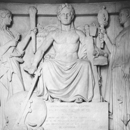 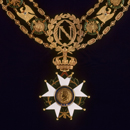 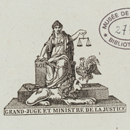 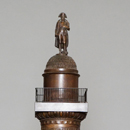 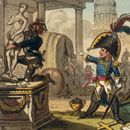
|

|
Watch the animation of the historic re-enactment of the maintenance of the soldier’s riffle in the army of Napoleon (length : 2minutes 30secondes, french voiceover). |
Watch "Commentary of masterpiece :the Civil code" (length : 2 minutes 46 seconds, french commentary) |

Control of territories and populations
We have destroyed everything and now we need to build again. Indeed, we still have a government, power bodies but what is left of the rest of the nation? A speck of dust. […]. We are scattered, left without a system, without a meeting, without any contact
Discourse given by Napoleon Bonarparte on 18 Floreal Year X [May 8, 1802] in Mémoires sur le consulat: de 1799 à 1804, Antoine-Clair Thibaudeau

Regulating religion
we owe in particular to Napoleon the First, our Emperor, love, respect, obedience, fidelity, military service, and the tributes ordained for the preservation, and the defence of the Empire and of his Throne ; besides we owe him fervent prayers for his safety and for the temporal and spiritual prosperity of the State
The Gentleman's Magazine, Volume 101, John Nichols

Controlling opinion
These Moniteurs, […] so terrible and dangerous to so many reputations, are uniformly useful and favomable to me alone. It is with official documents that men of sense and real talents will write history ; now, these documents are full of the spirit of my government, and to them I make an earnest and solemn appeal
Napoleon I in Memoirs of the life, exile and conversations of Emperor Napoleon by the Count de Las Cases

Making of Paris a new Rome
When our victorious armies enter Italy, the capture of the Apollo Belvedere and the Farnese Hercules will surely be the most brilliant conquest. Although Greece decorated Rome, should the masterpieces of the Greek republics decorate enslaved nations ?
Abbé Grégoire, 14 Fructidor, year II [August 31, 1794] in Orateurs politiques: tribune française; choix des discours et des rapports les plus remarquables prononcés dans nos assemblées parlementaires, Auguste Amic, Étienne Mouttet













